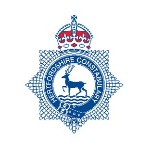
|
||
|
|
||
|
||
|
UPDATE TO MESSAGE: ‘Fraud / Scam Calls from fake 'Police' |
||
|
UPDATE TO MESSAGE ‘Fraud / Scam Calls from fake 'Police'
There has been a Herts Connected message recently sent – on the 15/07/2025 titled ‘Fraud / Scam Call from ‘fake’ Police’ whereby some of the information was not correct. Please do not call 999 to report an attempt / scam phone call. 999 is for emergency calls.
Please see the below information for further information and reporting advice.
If you receive a scam call, hang up immediately and do not provide any personal or financial information. Report the scam call to the appropriate authorities like Action Fraud. Here's a more detailed breakdown:
Don't Engage:
Verify the Call:
Report the Scam: Take Further Action: Block the scammer's number on your phone to prevent future calls from them. Inform your family, friends, and colleagues about the scam to help them avoid falling victim. Keep a close eye on your bank and credit card statements for any unauthorized activity. If you are concerned about identity theft, you can place a fraud alert or credit freeze on your credit report. If you receive unwanted calls, you can complain or report it to your Telecom Service Provider (TSP).
Further information on how to keep you and your money safe:
It can be scary to receive one of these calls or messages. You want to help, and you wouldn’t normally question the police.
But there are some questions you can ask yourself to check what you’re being told.
How do I know they are who they say they are? If they’re really a police officer, they can show you their ID and tell you which force they’re with. You can then call that police force on 101 to report what has happened and to confirm who they are.
Is this a real investigation? It is very unlikely that the police would need to call you in person to help with an investigation. And if it’s a real investigation, it will have a crime number. Ask them for this number and call 101 to check it matches anything they have.
Why am I being asked to withdraw or spend my own money? The police can buy goods from stores and take out money in bank branches themselves. If you’re being asked to use your own money, this is a sure sign of a scam.
Have I ever been asked to do something like this before? Neither the police nor any other legitimate organisation would ever ask you for your card or PIN or to take out money or buy items on their behalf. If you're asked to do something with your own money, especially out of the blue, or if it feels at all odd – hang up the phone. Call the number on the back of your bank card to check it with us or dial 101 to go directly to the police.
Why am I being told not to tell anyone about this? There’s no reason you cannot talk it through with those you trust. They may spot something suspicious or know something you don’t. | ||
Reply to this message | ||
|
|





